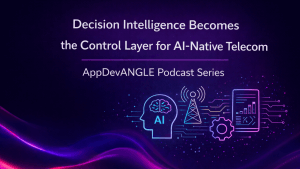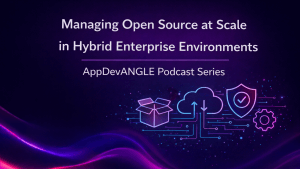I recently attended Enterprise Connect 2025 in Orlando FL. It was the first time back after an eight-year hiatus, and the message from the keynotes and at the booths was crystal clear: AI isn’t just changing the game for customer experience and collaboration—it is the game.
Across keynote stages and packed sessions that I attended, leaders from Amazon, Microsoft, Google, Zoom, Cisco, RingCentral, and enterprise IT departments drove home the same point: AI is here, it’s real, and it’s already transforming how enterprises operate.
The Age of AI-Powered Contact Centers Has Arrived
Amazon’s Q in Connect touted impressive benefits such as cutting agent turnover by 30% and enabling managers to evaluate 100% of contacts using Contact Lens. Google echoed the sentiment with a strong emphasis on personalization and time-to-value, touting a 40% reduction in average resolution time with AI-driven workflows.
Contact centers, long considered cost centers, are now emerging as engagement centers—powered by real-time intelligence, generative AI agents, and smart coaching tools. RingCentral’s AI Receptionist “Air,” just recently released, has been adopted by over 200 customers, demonstrating the interest in getting on the AI train.
While many of the demos highlighted the simplicity adopting AI, conversations with the team at Miratech pointed out that many organizations lack the internal skills to pull off the transition and their consulting business is busier than ever ensuring smooth deployments and integrations with ecosystem partners.
Generative AI was on Display
The convergence of generative AI and natural language interfaces showed real promise. Microsoft showcased Copilot’s deep integration across Teams, SharePoint, and Dynamics 365—automatically generating meeting summaries, customer follow-ups, and even recommending call transfers based on context.
Zoom’s AI Companion was highlighted as a personal productivity booster, now armed with reasoning and task automation capabilities. Their demo showed how AI is moving beyond passive assistance to active, autonomous problem-solving.
And Cisco provided a sneak peek at WebEx’s Agentic AI, a platform capable of predictive action and dynamic personalization. Combined with workflow integrations into ServiceNow, and Salesforce, AI is quickly becoming the brain behind enterprise orchestration. Cisco and Microsoft also highlighted their collaboration and interoperability, with each appearing in each other’s keynote demos. Cisco also highlighted the value of Cisco Spaces and workplace designer which take advantage of Cisco devices to deliver differentiated experiences. Check out this write up from the Cisco office at Penn1 .
Security, and Trust are Important
IT leaders from AAA, the City of Phoenix, and Warner Enterprises added a dose of realism: governance, training, and cybersecurity are not afterthoughts—they’re the foundation. These leaders reminded the audience that AI’s effectiveness is only as strong as your framework for measuring it.
Along those lines speakers also discussed new KPIs like AI engagement rate, agent confidence, and time-to-value and how those are quickly replacing legacy metrics.
AI in the Enterprise: Not Someday—Today
From smart room recommendations in Microsoft Places to real-time foreign language translations in meetings, AI is being embedded into every layer of enterprise infrastructure. Examples such as Envision Radiology’s use of AI for patient documentation and AAA’s Copilot rollout across all business units showed that this isn’t a proof of concept or pilot phase—it’s rapidly becoming the main event.
And as keynote after keynote confirmed, whether it’s contact center coaching, note taking in collaboration apps, HR automation, or omnichannel CX, AI is now driving real-world outcomes.
Final Thoughts: A New Chapter in Human-AI Collaboration
Many speakers were clear that AI isn’t replacing the human touch—it’s augmenting it. As Zoom’s keynote closed with a focus on “AI for human connection,” and Microsoft wrapped with gratitude for their customers’ trust, Cisco highlighted the human experience, one thing was clear: the future belongs to those who can blend technology with empathy, automation with intention, and intelligence with integrity.
Enterprise Connect 2025 showed us that AI is no longer a futuristic vision. It is a requirement for today’s enterprise—flexible, measurable, and designed to elevate both employees and customers alike.



